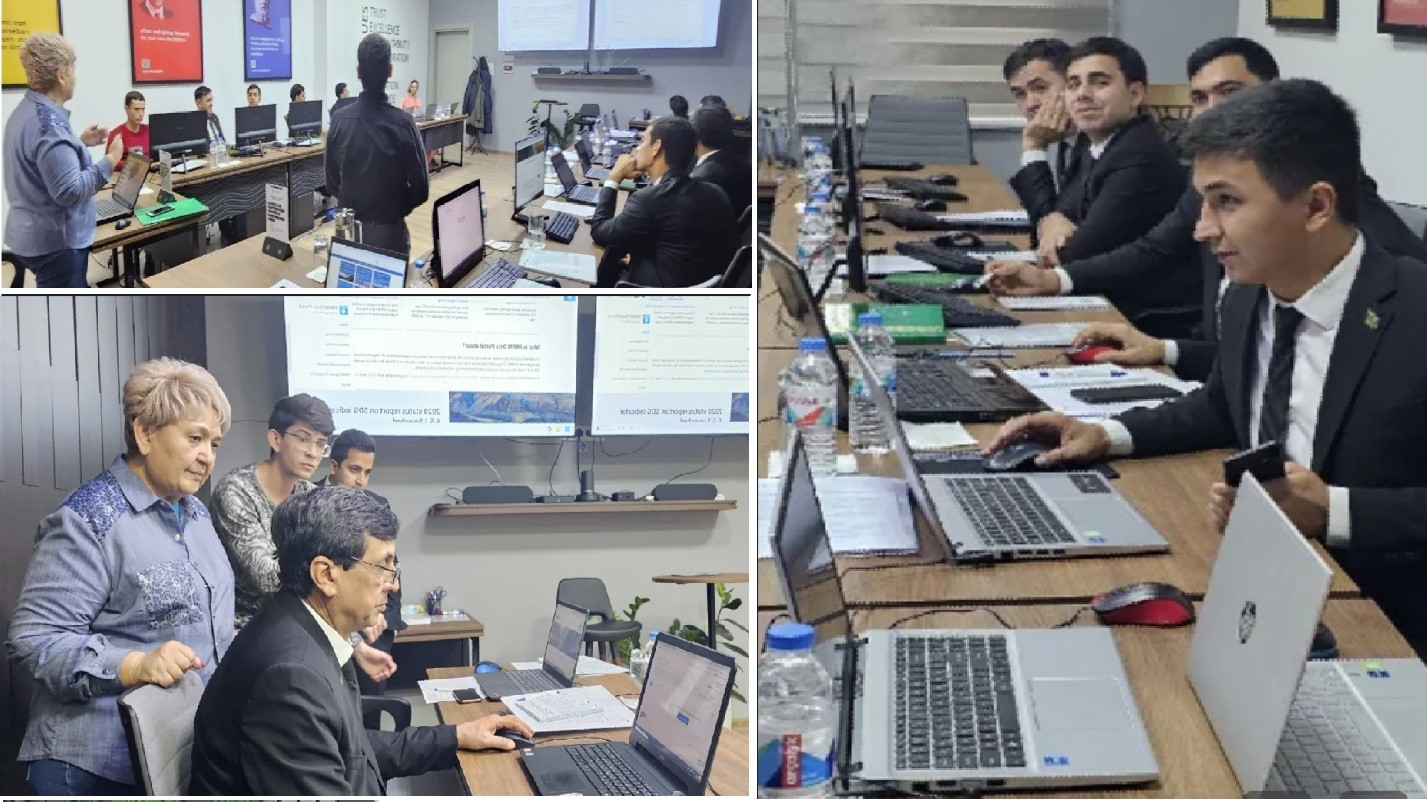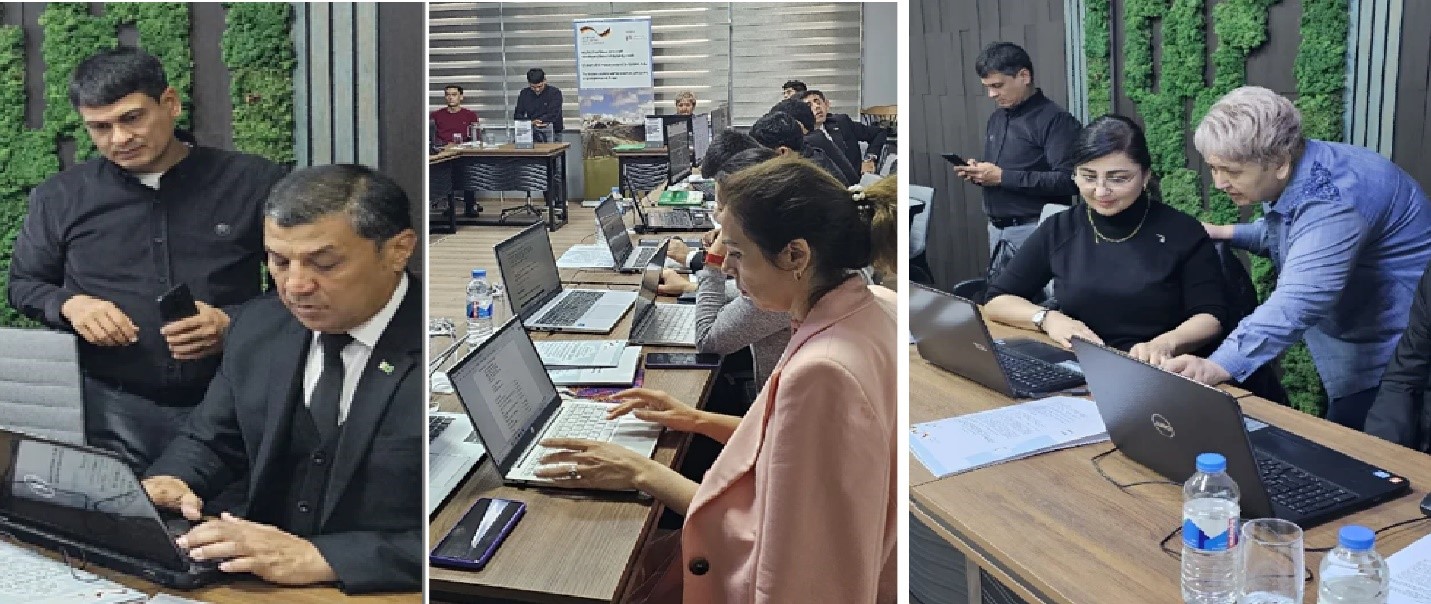A certification program for 15 specialists from environmental and water management departments recently concluded in Ashgabat. The program aimed to familiarize the participants with the international unified methodology for assessing progress on SDG indicator 6.5.1 - Integrated Water Resources Management. This methodology was developed by the Danish Hydrological Institute and approved by the UN Program on Environmental Protection.
The specialists were trained online by Cap-NET and the Global Water Partnership. They were introduced to the goals, objectives, and specifics of surveying SDG indicator 6.5.1, as well as the requirements for collecting and providing data for the assessment. The participants also gained skills in moderating intersectoral consultations on issues of Integrated/Comprehensive water resources management with the participation of all interested departments. The course included a large selection of methodological literature on various aspects of IWRM, including “gender aspects.”
During the training, the participants became familiar with the procedure and requirements for scoring and assessing changes in the four main components of the survey:
1. Enabling conditions: policy documents, laws, and plans underlying the implementation of IWRM.
2. Institutions and participation: the full range and roles of political, social, economic, and administrative institutions and other stakeholder groups promoting the implementation of IWRM.
3. Management tools: tools and activities that enable decision-makers and users to make rational and informed choices among alternative actions.
4. Financing: budgeting and financing available from various sources for the development and rational use of water resources (in addition to their use for drinking water supply and sanitation).
Upon completing the training course, the Turkmen specialists were awarded international certificates. The certification program was organized with the financial support of the GIZ regional project “Climate Risk Management in Central Asia” and methodological and advisory support from the Global Water Partnership for Central Asia and the Caucasus and Cap-NET.
This certification program has helped in forming a team of national specialists who have high competence and skills in moderating interdepartmental meetings with the participation of representatives of business and public organizations working in the field of IWRM. This is a significant contribution to increasing the human resources potential of government departments of Turkmenistan. The training will allow them not only to better prepare for new rounds of training national reports on progress in the implementation of SDG 6.5.1 planned for 2026 and 2029 but also to more effectively plan and implement IWRM activities in the periods between reports.

